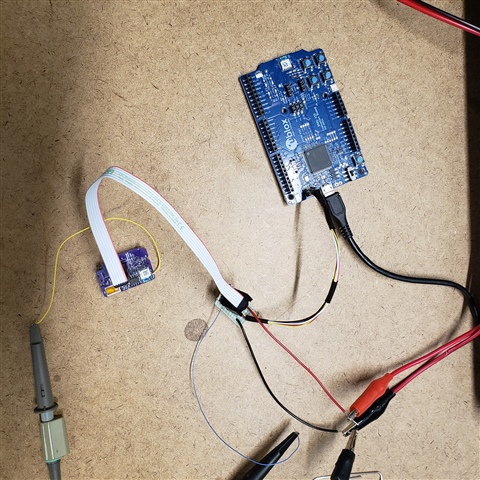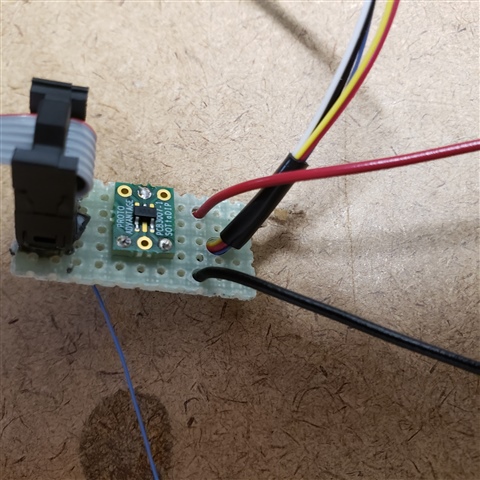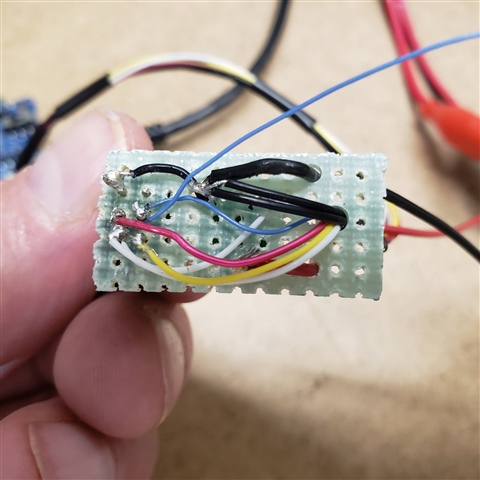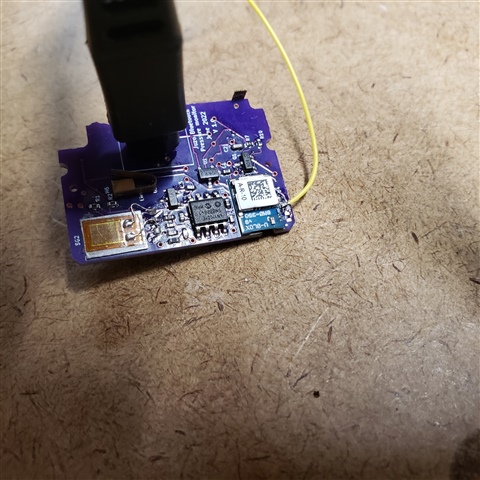I'm having no luck in getting JLinkExe or nrfjprog to see my BMD-350 device on my custom PCB.
I have read though all the threads here that reference similar issues and have verified all of the following:
* Connections to SWCLK and SWDIO are made properly and have no pullup/pulldown resistors.
* The device is remotely powered
* The signals on SWCLK and SWDIO are there and look to be the proper levels.
* The device itself works - it has factory firmware that advertises services (RigDFU etc.) on BLE
I have tried both a Segger JLink as well as the using the development board programmer via the 10
pin connector.
There has to be something basic I am missing. Below are a
PDF of the device schematic and the log.log output from nrfjprog -f nrf52 --recover
I'm doing the development in Linux, and have had no problem in connecting to the development board.
I've also asked for help from the manufacturer, UBlox, but have heard nothing back from them.
Any pointers here would be greatly appreciated.
-Glenn





